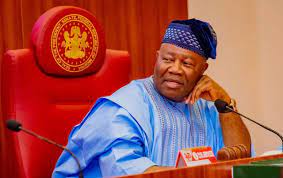Nigeria’s volatile foreign exchange market necessitates innovative solutions to address the concerns of businesses, investors, and policymakers. Blockchain technology, with its transformative potential across various sectors, emerges as a promising answer to these challenges.
Blockchain, a distributed ledger technology (DLT) exemplified by Bitcoin and Ethereum Network, offers unique advantages in the financial sector. By strategically integrating it into its financial ecosystem, Nigeria can potentially mitigate forex crisis challenges and cultivate a more robust and transparent financial infrastructure.
The Nigerian forex market stands to gain the following benefits if Blockchain technology is adopted
Enhanced Security and Transparency: Blockchain facilitates secure and transparent transactions, eliminating intermediary involvement in the forex market. This decentralized approach reduces reliance on traditional banking systems and intermediaries, mitigating the risks of manipulation and fraud prevalent in centralized systems.
Improved Market Participation: Foreign exchange platforms powered by blockchain leverage liquidity pools and automated market makers (AMMs) designed using smart contracts. These mechanisms, overseen by the government, enable smoother foreign currency exchange and wider market participation.
Stakeholders, including the Central Bank of Nigeria (CBN) and financial institutions, can function as liquidity providers, incentivized by a portion of the trading fees. This approach can potentially eliminate the need for black markets by effectively integrating them into a regulated and transparent system.
Streamlined Remittances: Blockchain-based remittance platforms can significantly improve the efficiency of cross-border remittances, a crucial component of the Nigerian economy. Nigerians abroad can send funds back home more quickly and cost-effectively, bypassing the high fees and lengthy processing times of traditional channels.
Increased Accountability: Blockchain’s inherent immutability guarantees the secure and verifiable recording of all transactions, enhancing transparency and accountability within the forex market. This facilitates regulatory oversight and ensures adherence to forex regulations, mitigating the risks associated with corruption and illicit activities.
Resuscitating e-Naira with Blockchain:
Nigeria’s e-Naira, launched in October 2021 as Africa’s first central bank digital currency (CBDC), has yet to achieve its full potential. While it was envisioned to drive financial inclusion, reduce remittance costs, and address informal economic activity, its adoption has been significantly lower than anticipated. This limited uptake can be attributed to several factors, including a lack of widespread merchant acceptance and lingering skepticism among certain segments of the population regarding the Central Bank of Nigeria’s (CBN) policies, such as the previous ban on cryptocurrency transactions. As a result, the e-Naira’s current transaction volume remains very low, and its impact on established payment methods has been minimal.
The implementation of blockchain technology presents an opportunity to revive the e-Naira. By integrating it as the native currency of the blockchain system, the e-Naira can be revitalized and contribute to the overall financial ecosystem.
While promising, blockchain technology is not a standalone solution. Seamless integration between the traditional and blockchain-powered systems is crucial for practicality. Additionally, the current managed-float forex policy might be significantly impacted, requiring careful consideration and potential adjustments.
Effective Implementation Strategy:
Collaboration: Successful implementation necessitates a collaborative effort from public and private entities, leveraging expertise and resources across sectors.
Regulatory Frameworks: Establishing clear regulatory frameworks is essential to govern the operation of blockchain platforms and ensure their adherence to existing financial regulations.
Education and Infrastructure Investment: Sustained investments in education and infrastructure are crucial for facilitating nationwide adoption. Targeted training programs and comprehensive awareness campaigns can equip individuals and businesses with the necessary knowledge and understanding of blockchain, promoting its widespread adoption.
Nigeria stands at a critical juncture. By strategically leveraging the transformative potential of blockchain technology, the country can streamline its forex market, bolster transparency, foster financial inclusion, and pave the way for a more resilient and prosperous future.




